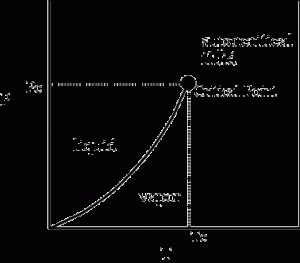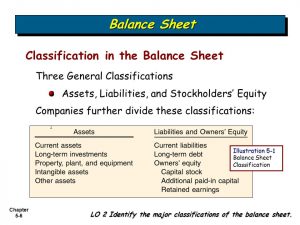
Below we take a closer look at the possible dangers of artificial intelligence and explore how to manage its risks. AI lacks the ability to understand and respond to human emotions effectively. This limitation can impact customer service and other areas where emotional intelligence is essential. Now, many reports show https://www.accountingcoaching.online/ that AI will likely create just as many new jobs as it makes obsolete, if not more. But then you run into the problem of having to train humans on these new jobs, or leaving workers behind with the surge in technology. In this study, the AI more often assigned negative emotions to people of races other than white.
Embedding ethics in computer science curriculum
On a company level, there are many steps businesses can take when integrating AI into their operations. Organizations can develop processes for monitoring algorithms, compiling high-quality data and explaining the findings of AI algorithms. Leaders could even make AI a part of their company culture and routine business discussions, establishing standards to determine acceptable AI technologies.
Advantages and Disadvantages of Artificial Intelligence - The Bottom Line
We had not realized Intel had published a whitepaper with the Gaudi 3 specs, either, and were working off incomplete briefing materials. First, the AI accelerator that offers the best price/performance is the one you can actually get. And two, if it can do matrix math at a reasonable mix of precisions and if it can run the PyTorch framework and the Llama 2 or Llama 3 model, then you can sell it because of the dearth of supply of Nvidia GPUs. In the meantime, Intel said last October that it has a $2 billion pipeline for Gaudi accelerator sales, and added in April this year that it expected to do $500 million in sales of Gaudi accelerators in 2024. But clearing that $2 billion pipeline will mean paying for Falcon Shores and Falcon Shores 2, so Intel is highly motivated. As Intel revealed back in June 2023, the Falcon Shores chips will take the massively parallel Ethernet fabric and matrix math units of the Gaudi line and merge it with the Xe GPU engines created for Ponte Vecchio.
Disadvantages of Artificial Intelligence Everyone Should Know About
Besides tracking a person’s movements, the Chinese government may be able to gather enough data to monitor a person’s activities, relationships and political views. Over-reliance on AI can lead to problems if the systems fail or produce incorrect results. It is crucial to have checks and balances to ensure the reliability and accuracy of AI systems. Learn how Tableau uses AI analytics to equip our users with the best possible data, allowing them to make informed decisions about their business. Similarly to the point above, AI can’t naturally learn from its own experience and mistakes.

Skill loss in humans

AI has the potential to contribute to economic inequality by disproportionally benefiting wealthy individuals and corporations. As we talked about above, job losses due to AI-driven automation are more likely to affect low-skilled net cash per share meaning workers, leading to a growing income gap and reduced opportunities for social mobility. Questions about who’s developing AI and for what purposes make it all the more essential to understand its potential downsides.
Privacy Concerns
AI (artificial intelligence) describes a machine's ability to perform tasks and mimic intelligence at a similar level as humans. Balancing high-tech innovation with human-centered thinking is an ideal method for producing responsible AI technology and ensuring the future of AI remains hopeful for the next generation. The dangers of artificial intelligence should always be a topic of discussion, so leaders can figure out ways to wield the technology for noble purposes.
- For example, "By far the most common point leading to exclusion was failure to state the data pre-processing techniques in sufficient detail."
- For example, it may not have the qualities the AI system needs to perform whatever task we are training it to do.
- Data bias is when the data used to develop and train an AI is incomplete, skewed, or invalid.
- As new algorithms saturate the market with promises of medical miracles, losing sight of the biases ingrained in their outcomes could contribute to a loss of human biodiversity, as individuals who are left out of initial data sets are denied adequate care.
- As reported by Wired's Tom Simonite last month, two academics invited to participate in a Google conference on safety in robotics in March withdrew from the conference in protest of the treatment of Gebru and Mitchell.
- "We prefer this human-centered approach and believe it allows our data to have a relatively unbiased view of age and gender," write Hazirbas and team.
The above may seem trivial, but issues with data labelling or poor data sets can have problematic consequences if the AI system is involved in medical diagnosis, for example. As a hypothetical example, let’s take a military plane equipped with an AI-powered autopilot system. An adversary could create obstacles the plane AI cannot “see” because they are not in the training data, leading to potentially catastrophic consequences. Moreover using AI in segmentation, which divides a population into groups based on shared characteristics, can introduce bias into AI systems. In a segmentation algorithm that only includes people who have previously purchased a product, it will be biased against those who have not.
Those could be researchers' individual priorities, or they could be a corporation's priorities. A convolutional neural network whose objective function is to output a score of how "beautiful' a given photograph of a face is. The objective function, also known as a loss function, is the thing one is trying to optimize. https://www.personal-accounting.org/historical-cost-principle-concept-purpose-what-is/ Oftentimes, however, the objective function is designed to reflect priorities that must themselves be investigated. Looking at what a machine is and how it operates can reveal what things needs to be thought about more deeply. An area where AI scholars are actively doing extensive research is in climate change.

When it comes to processing data, the scale of data generated far exceeds the human capacity to understand and analyze it. AI algorithms can help process higher volumes of complex data, making it usable for analysis. Humans disagree and allow their biases to leak through in their decisions all the time. All humans have biases, and even if we try and solve for them, they sometimes manage to sneak through the cracks. However, there are challenges, like potential initial implementation costs and concerns about job displacement. Successful and responsible integration of AI into project management practices requires a balance between leveraging its efficiency gains and addressing these challenges.

A. Artificial Intelligence (AI) is an emerging technology that seeks to replicate human intelligence and reasoning in AI algorithms and systems. Companies are utilizing artificial intelligence (AI) to create sustainable solutions in energy, agriculture, and water management by optimizing resource utilization, forecasting demand patterns, and identifying areas for efficiency improvements. This results in less environmental impact and more effective resource allocation. Better decision-making, higher productivity, and the creation of novel technologies for sustainable practices in various domains are all possible as a result. Artificial intelligence is being used to create products and software that improve accessibility for people with disabilities, such as voice recognition, real-time captioning, and assistive navigation.
Let us now look at what are the main disadvantages that Artificial intelligence holds. AI on the other hand, is devoid of emotions and highly practical and rational in its approach. A huge advantage of Artificial Intelligence is that it doesn't have any biased views, which ensures more accurate decision-making. "Humanity can enjoy a flourishing future with AI. Having succeeded in creating powerful AI systems, we can now enjoy an 'AI summer' in which we reap the rewards, engineer these systems for the clear benefit of all, and give society a chance to adapt." The risk of AI development being dominated by a small number of large corporations and governments could exacerbate inequality and limit diversity in AI applications.